Theo Wilmot is a former activist for the far right political group Patriotic Alternative. He explains how the unexpected welcome and love he experienced in multicultural churches helped him leave his old views behind
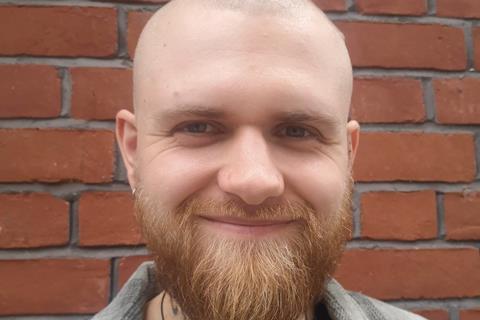
In 2016, at a time when a lot of people were getting [politically] very divided, it was a turbulent time for me personally. I was having a difficult romantic relationship, and I experienced the loss of my children [through abortion].
I found myself reading far right literature, including from Patriotic Alternative, which is a political campaign group on the far right.
I read the books of Sir Oswald Mosley [a British extremist who sympathised with Hitler]. I was very interested in his British Union of Fascists. I got a tattoo of the BUF logo on my leg.
I was an angry and disenfranchised young man. I perceived radical or extreme ideas as strong and forceful solutions, which really appealed to me.
At the time, I called myself a Christian because that was the traditional religion of the English, and I was an English nationalist. But I never opened the gospel, I never prayed, and I never went to church. I was just calling myself religious for political capital.
The turning point
I was quite badly mobbed in Sevenoaks, Kent [by left wing extremists] and that was a big turning point for me. There’s a special kind of moment of clarity that you get when you’re on the floor being kicked by dozens of people, and you just think, why are we here? Why is this happening? And you look up and think, these are exactly the kind of young men… I talk about wanting to help, and here we are, and they’re kicking the hell out of me. So how do we get to this point of of enmity?
I was an angry and disenfranchised young man
I was wracked with depression and anxiety, because I just didn’t know what I believed.
My father suggested I try prayer, and he sent me a little book about the Jesus prayer by Metropolitan Kallistos Ware of blessed memory, an Orthodox bishop. I said “OK I’ll try it”, not thinking that it was going to do me much good, but not really knowing what else to do. So I started a daily practice of prayer. I was pretty much house bound at that point, but I thought, OK, this is something I can do, even in that state.
And then a friend of mine gave me an old King James Bible, and I started reading. I started reading the Gospels, started reading Genesis and the Psalms, and that was the start of my journey towards Christianity.
I started to comprehend the Gospel and to understand that there was truly good news to look at, it wasn’t all horror and senselessness, which is what I had ultimately found in secular politics. There was a world of meaning, and goodness and truth and beauty.
I started to see it also in other people, which was quite a shock to me. I was visiting churches and speaking to Christian people, many of whom weren’t the kind of people that I mixed with, many of whom were people of different races and immigrants.
There was a very welcoming gentleman who was the utter antithesis of anyone I would have associated with before. He was an immigrant from Asia, and he was homosexual. He was not someone you would expect someone like me to gel with at all. And yet, he was wonderfully welcoming, even though I was open about who I had been and what I believed. He forgave me right off the bat for any enmity I might have felt towards him in the past and to people like him. And he welcomed me.
I was reading about the divine image and the idea of the holiness of the human person, and about seeing Christ in one’s neighbour, and I started to see that in people.
My future
I’m not interested in those political games [anymore]. I’m interested in in the Gospel. I’m interested in Jesus Christ and in trying to serve my neighbour as best I can, wretched as I am. I wouldn’t necessarily call it deradicalization (I don’t like that term). But I would call it healing.
The reason I went to that that extreme in the first place, is because I had been disillusioned and I was hurting, but ultimately didn’t find answers or goodness or beauty in the fascist literature.
Following the riots we need to acknowledge that people have real grievances. A lot of people have lived in deprivation for a long time, have suffered with some of the implications of mass immigration policies brought in during the New Labour era, and I think they feel betrayed because of that. Muslim communities are also suffering many of the consequences of of those Labour policies, of very poorly handled mass immigration.
There needs to be some kind of reconciliation. Especially as Christians, we should look at people and see them as people who are hurting and try to understand them. And see how we can serve them, rather than condemning.
This sense of ‘two tier’ justice is frustrating the possibility of reconciliation at the moment, that has to change, and secondly, and more importantly, in our own hearts, we have to stop condemning each other and stop being at odds with one another, set aside that enmity and that condemnation, and accept that we have to love our neighbours.
To those who find themselves drawn to the far right or the far left, or Islamism, or these kinds of ideologies, I would say it’s understandable that you’re looking for that healing…But you’re not going to find it there. You’ll find an outlet for your own grievances, for your own hurt. But you won’t find healing, and you won’t find true purpose. You will only find that in Christ, and you will only be at peace in him. In [extremist politics] you’ll become somebody you never set out to be, because that’s what these kind of ideologies do to people. That’s certainly what happened to me. And it’s not worth it. Give Christ the chance to heal you, because he wants to. He’s got everything you need, and his yoke is light, and all he needs is that chance. He just wants you to come and see, and he’ll show you.
Theo Wilmot was speaking to Heather Tomlinson
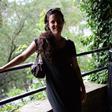


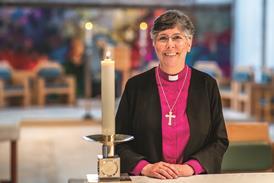
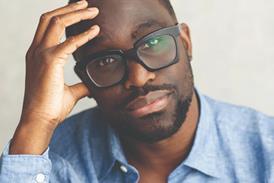
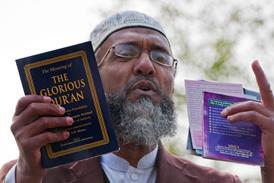
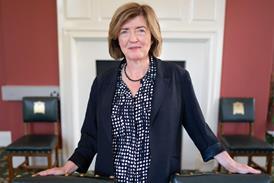

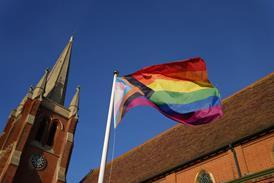
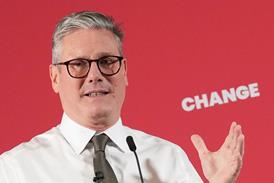








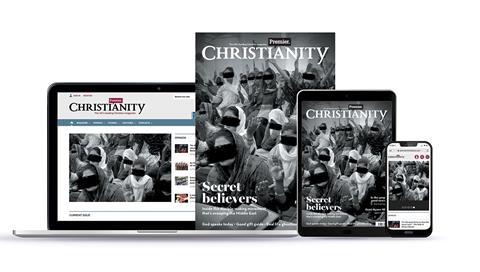



















2 Readers' comments